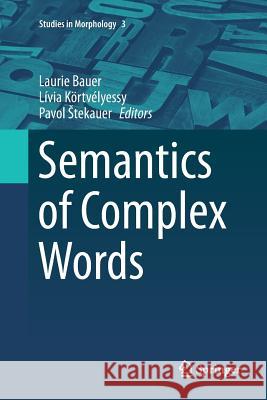Semantics of Complex Words » książka
topmenu
Semantics of Complex Words
ISBN-13: 9783319381527 / Angielski / Miękka / 2016 / 319 str.
Kategorie:
Kategorie BISAC:
Wydawca:
Springer
Seria wydawnicza:
Język:
Angielski
ISBN-13:
9783319381527
Rok wydania:
2016
Wydanie:
Softcover Repri
Numer serii:
000408260
Ilość stron:
319
Waga:
0.46 kg
Wymiary:
23.39 x 15.6 x 1.75
Oprawa:
Miękka
Wolumenów:
01
Dodatkowe informacje:
Wydanie ilustrowane











